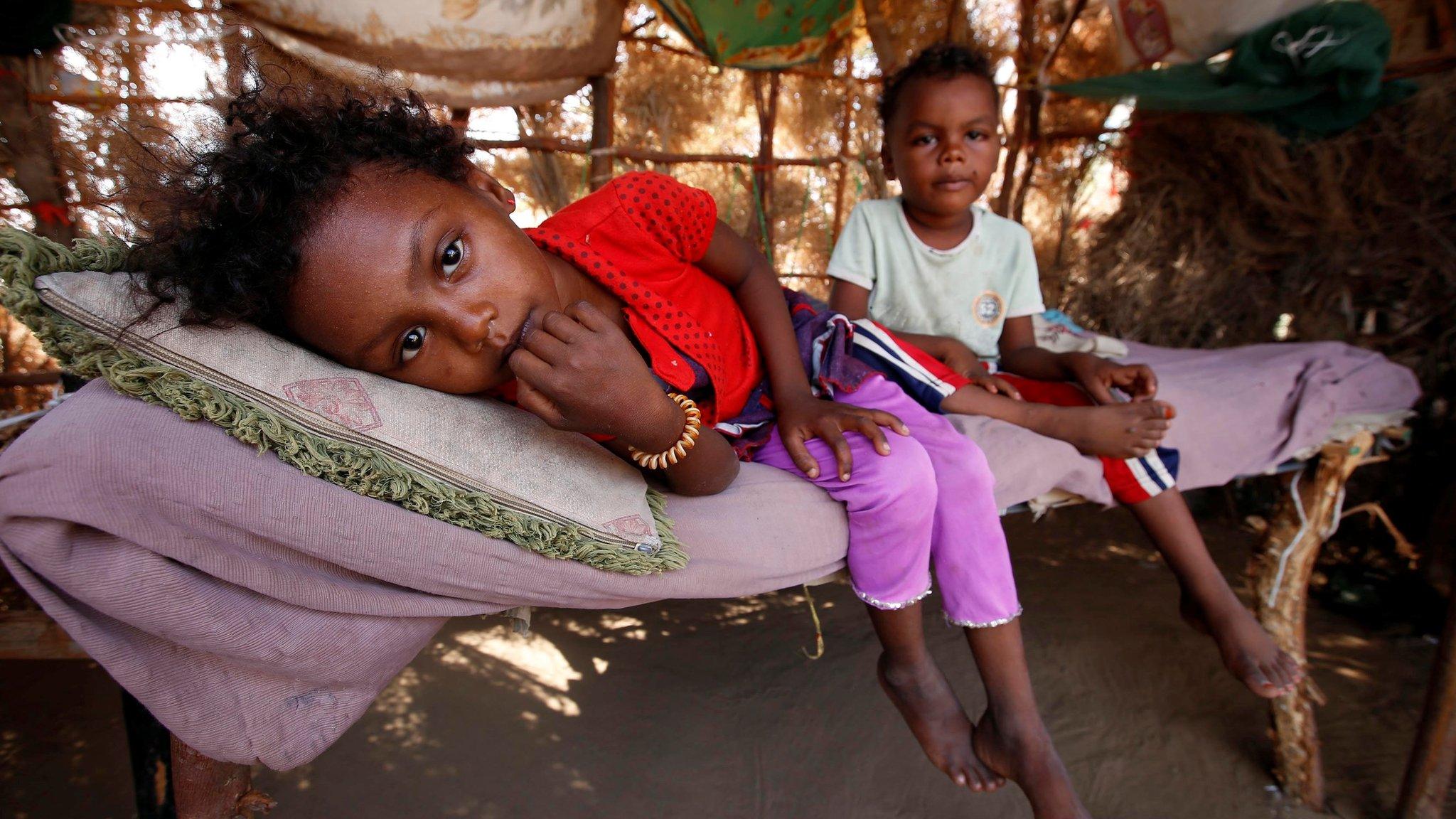Yemen rebels tighten grip on Sanaa after Saleh's death
- Published
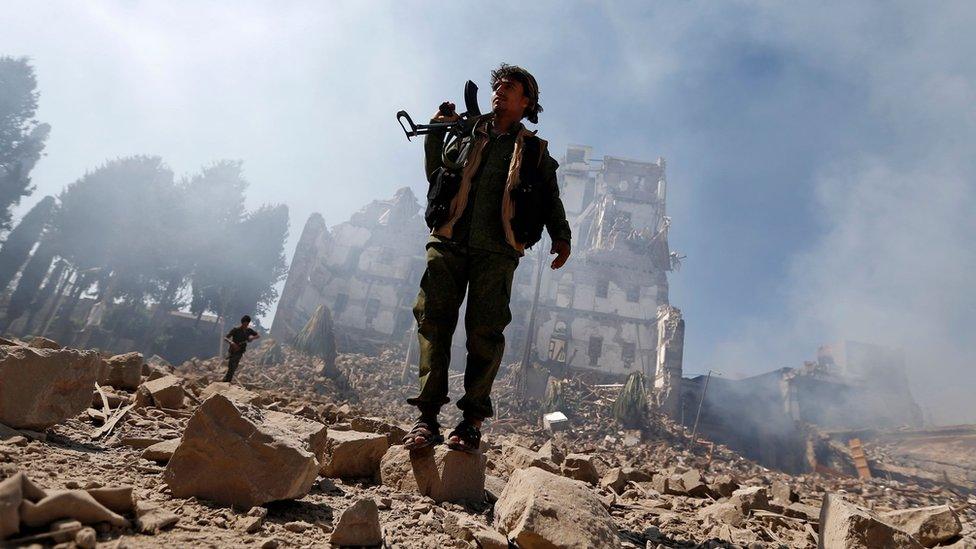
Saudi-led coalition warplanes bombed a presidential palace in central Yemen overnight
Houthi rebels are moving to tighten their grip on Yemen's capital, Sanaa, a day after they killed their former ally ex-President Ali Abdullah Saleh.
Residents said new checkpoints had been set up in the city and there were reports of arrests of Saleh supporters.
Saleh died in a roadside attack amid fierce clashes between his supporters and the Houthis in Sanaa.
Houthi leaders accused Saleh of "treachery", after he switched to the government's side in the civil war.
Overnight, a Saudi-led coalition backing the government carried out 25 air strikes on Houthi targets, including a presidential palace and other government buildings.
But the humanitarian co-ordinator for Yemen, Jamie McGoldrick, said it had been quiet in Sanaa since Tuesday morning, with civilians emerging from their homes.
Ali Abdullah Saleh ruled Yemen for 33 years
"They are now seeking safety, moving their families in case things erupt again and at the same time seeking medical treatment and trying to pacify very terrified kids," he told reporters in Geneva, according to the Reuters news agency.
The International Committee of the Red Cross (ICRC) says the fighting has left at least 234 people dead and 400 others wounded since Wednesday night.
Mr McGoldrick also said Saleh's funeral was expected later on Tuesday.
Houthi leader Abdul Malik al-Houthi urged Yemenis to join a rally in Sanaa on Tuesday afternoon to "prove that our entire nation stands by the [rebel] state in preserving security and stability and rejecting all treachery".
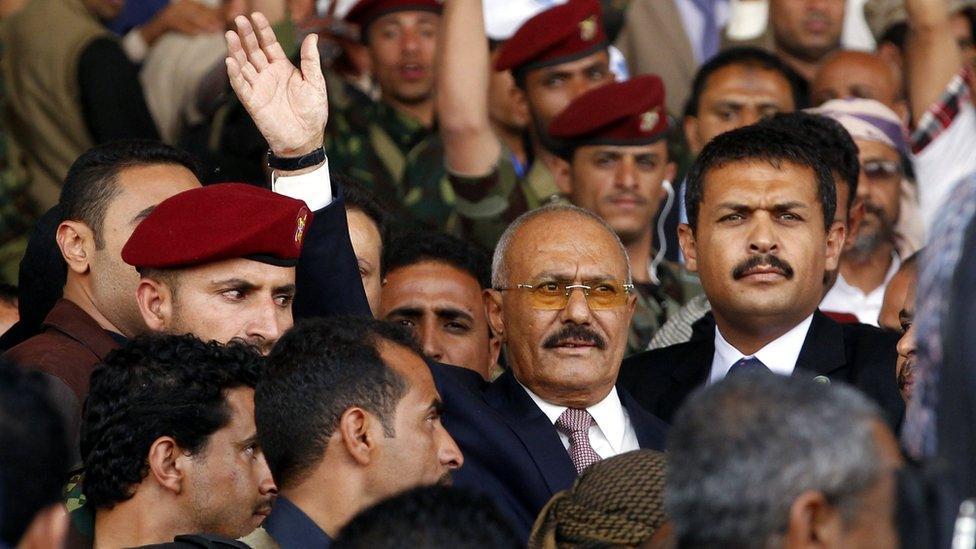
Ali Abdullah Saleh was accused of "treachery" by the Houthis after ending their alliance
Mr Saleh led Yemen for 33 years until an uprising in 2011 forced him from power.
Until recently, security forces loyal to him had been fighting alongside the Houthis in a war against the current President, Abdrabbuh Mansour Hadi. But a dispute over control of Sanaa's biggest mosque triggered armed clashes.
On Saturday, Saleh offered to "turn a new page" with the Saudi-led coalition if it stopped attacking Yemen and ended its crippling blockade of the country.
The Houthis accused him of a "coup" against "an alliance he never believed in", and announced his death on Monday hours after storming his home.
Officials in Saleh's General People's Congress party confirmed the news, saying a convoy that Saleh was in came under fire from Houthi fighters as it headed south towards the former leader's hometown of Sanhan.
Some reports said the 75-year-old was taken out of his vehicle after it was stopped by a rocket-propelled grenade and summarily killed.
Saudi-owned al-Ekhbariya TV reported on Tuesday that Saleh's son Ahmed Ali had vowed to avenge his death.
"I will lead the battle until the last Houthi is thrown out of Yemen," said the former Republican Guards chief, who lives in the United Arab Emirates.
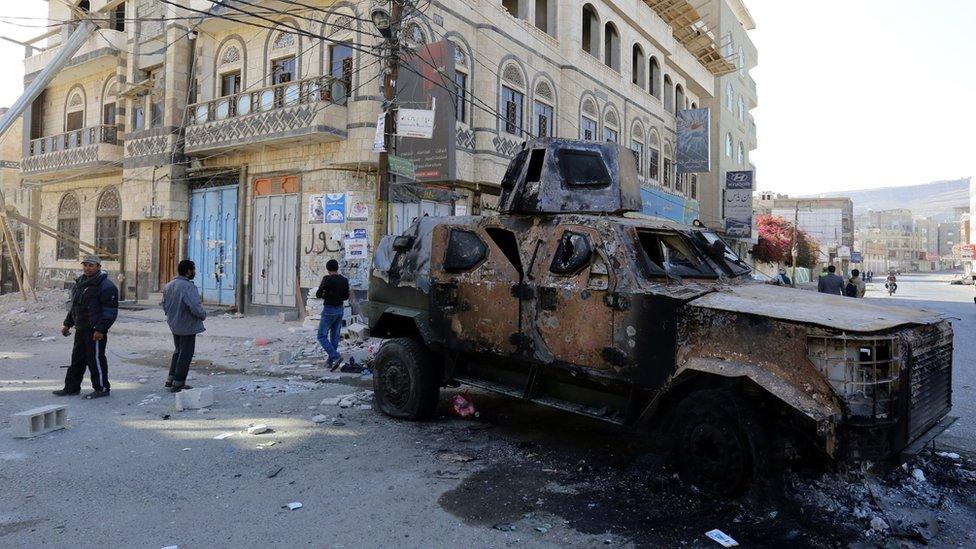
The ICRC says the fighting in Sanaa has left at least 234 people dead since Wednesday
The Saudi cabinet expressed "hope that the uprising of the Yemeni people against the sectarian terrorist Houthi militias supported by Iran will free Yemen of abuse, death threats and the appropriation of public and private property", a statement carried by the official Saudi Press Agency said.
More than more than 8,670 people have been killed and 49,960 injured since the Saudi-led coalition intervened in the conflict between the Houthis and forces loyal to President Hadi in March 2015, according to the UN.
The conflict and a blockade by the coalition have also left 20.7 million people in need of humanitarian aid, created the world's largest food security emergency, and led to a cholera outbreak that is thought to have killed 2,211 people since April.
- Published5 December 2017
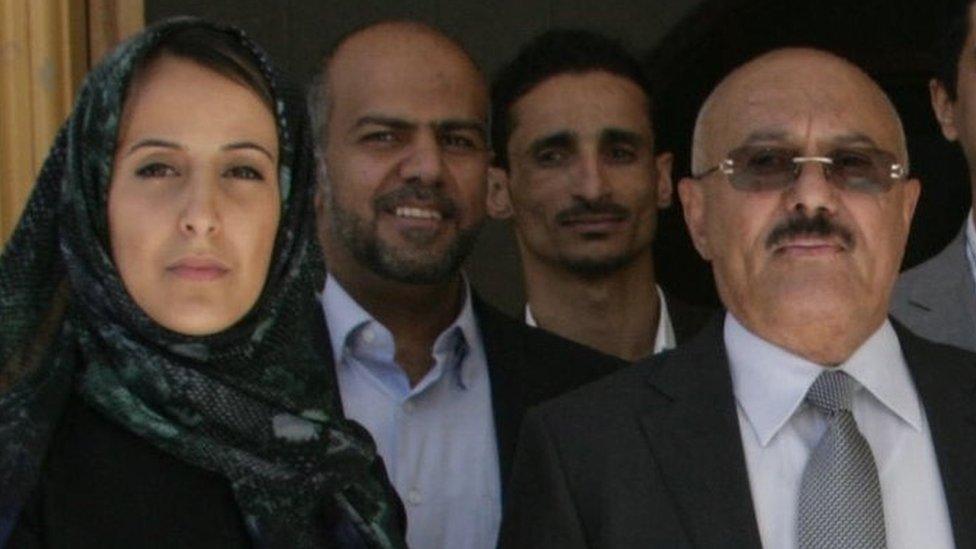
- Published5 December 2017
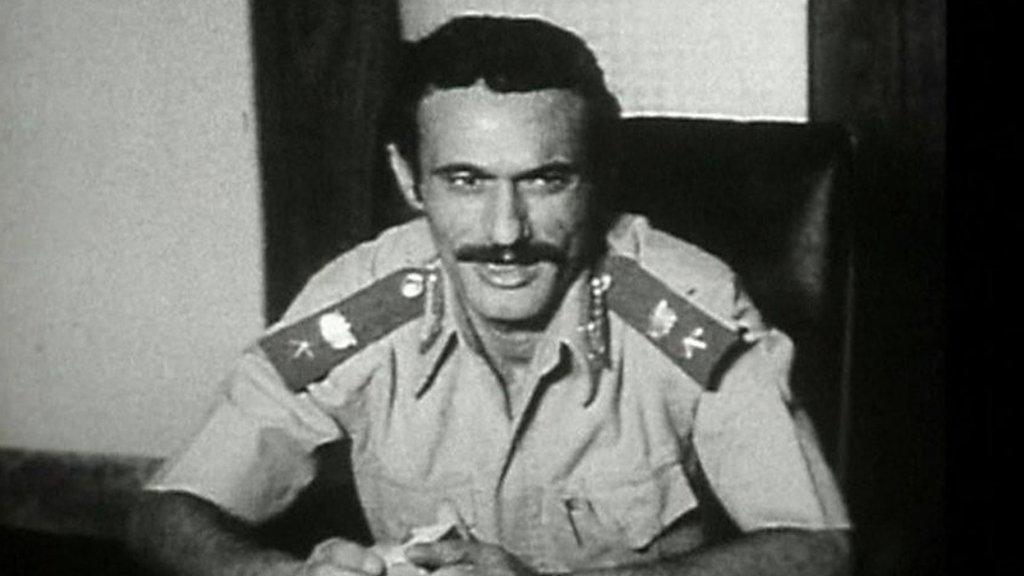
- Published4 December 2017
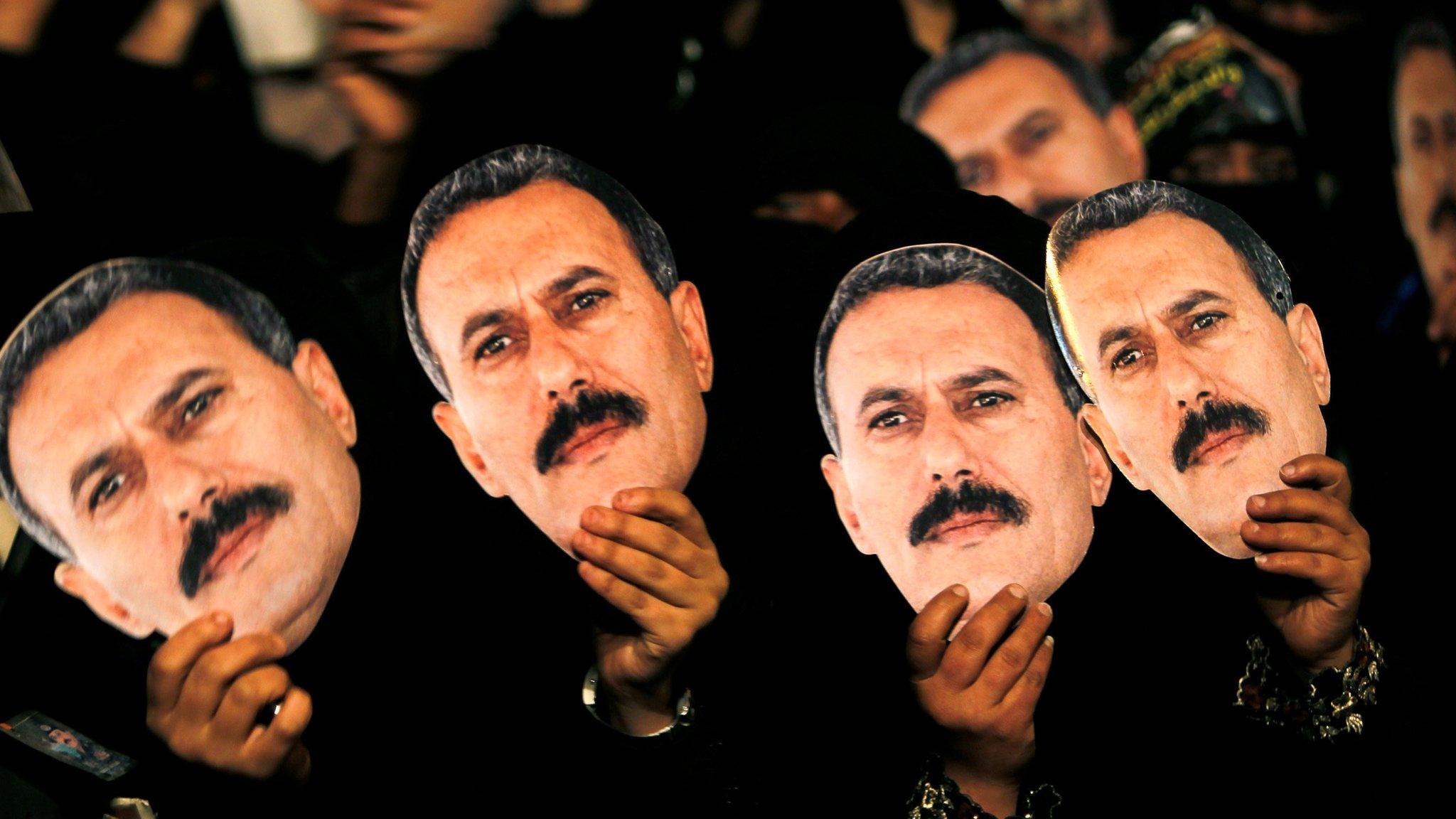
- Published4 December 2017
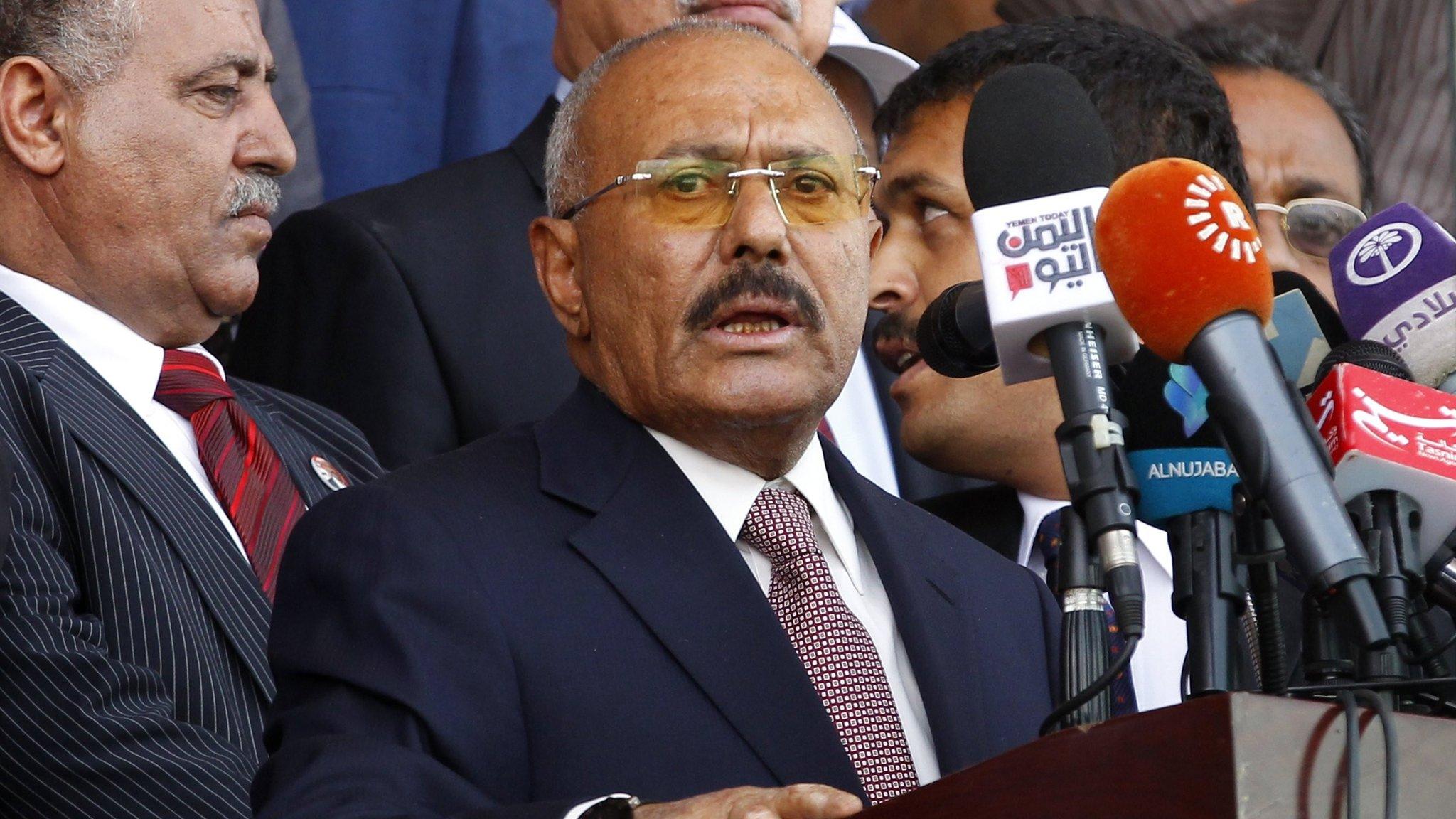
- Published4 December 2017
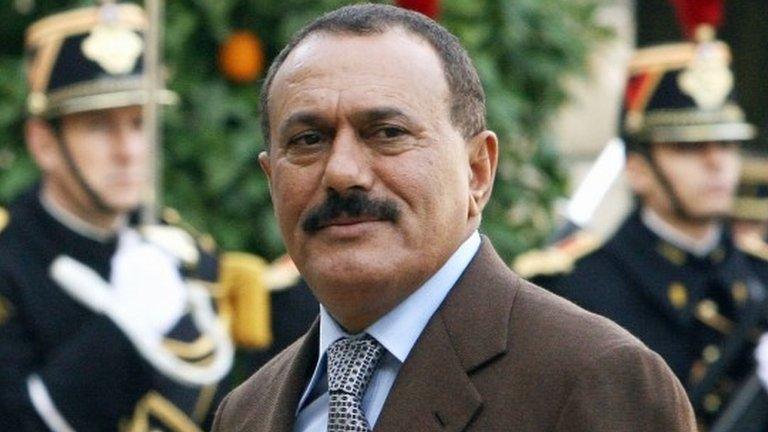
- Published4 December 2017
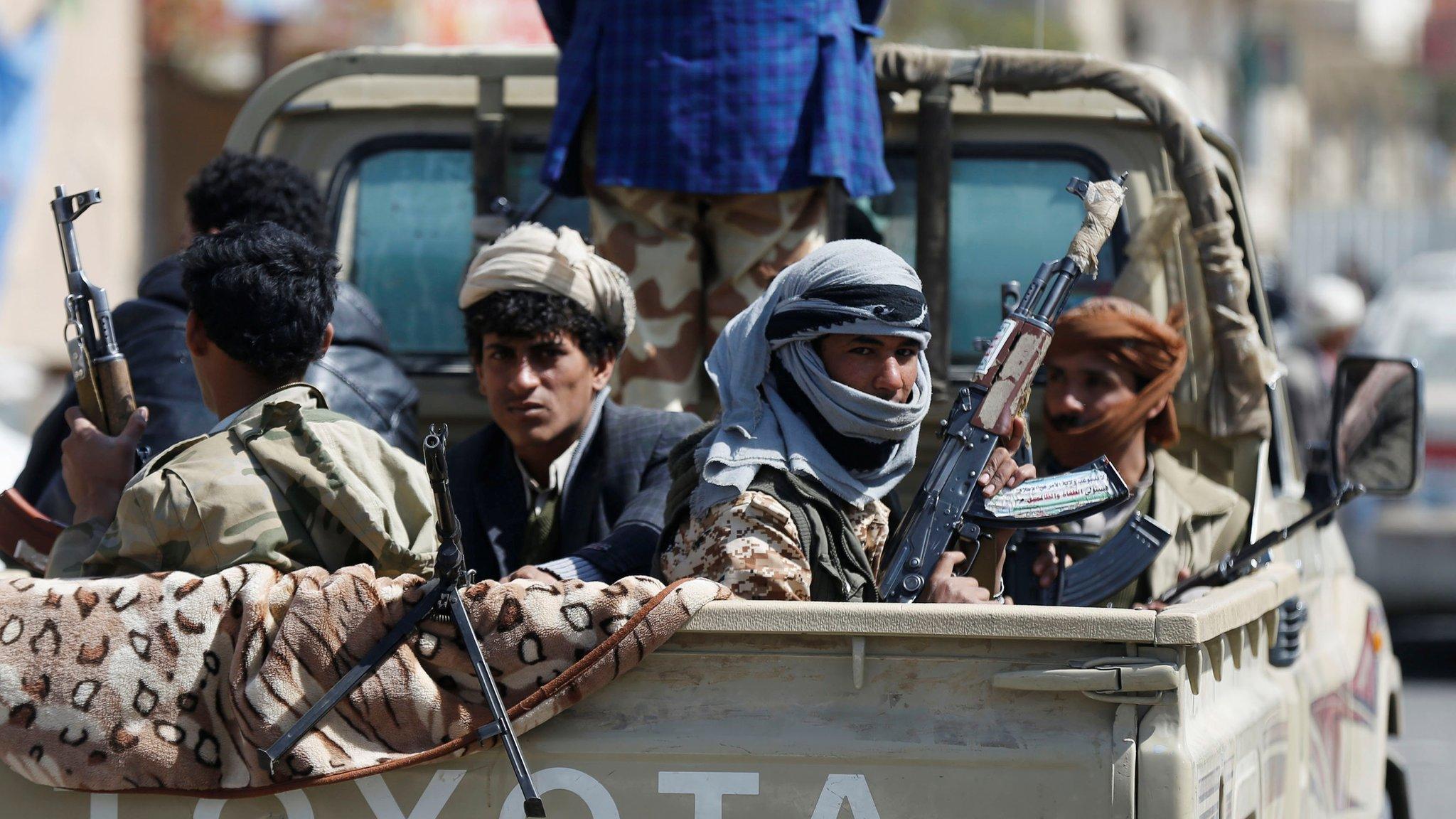
- Published14 April 2023
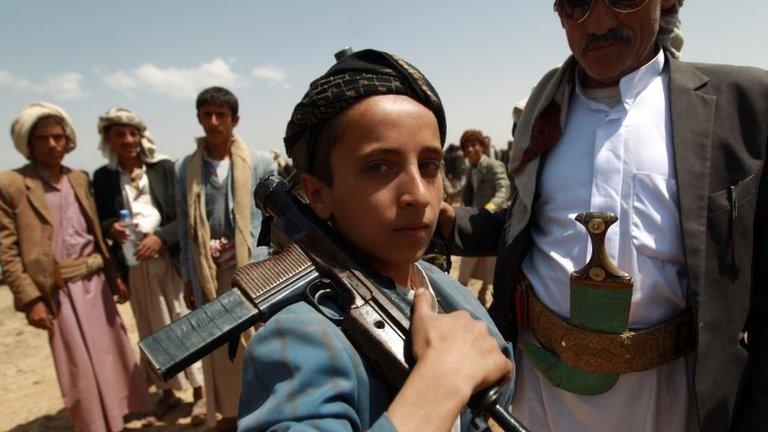
- Published14 November 2017
